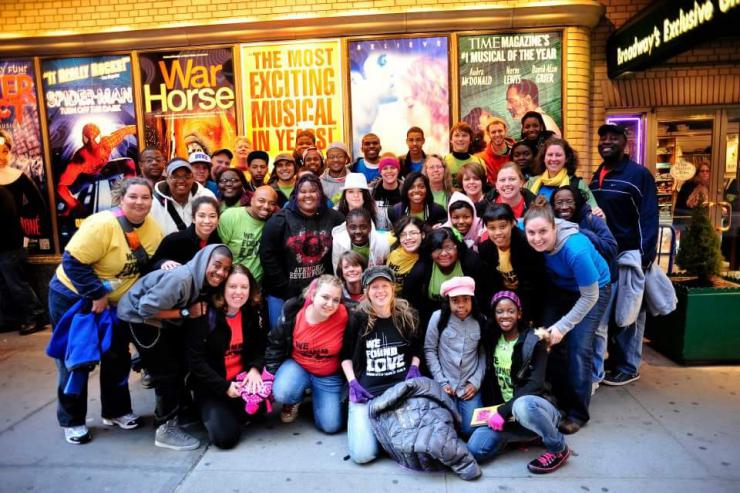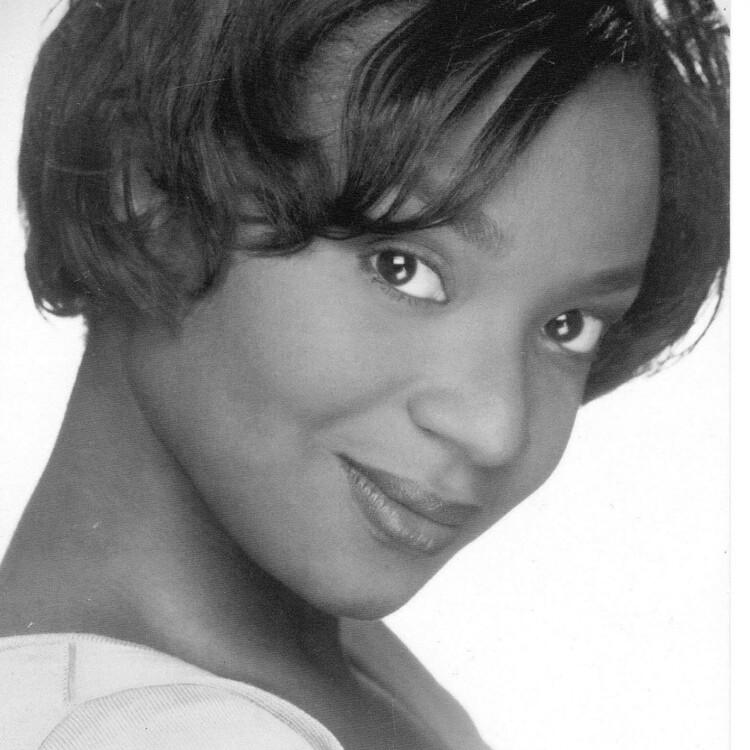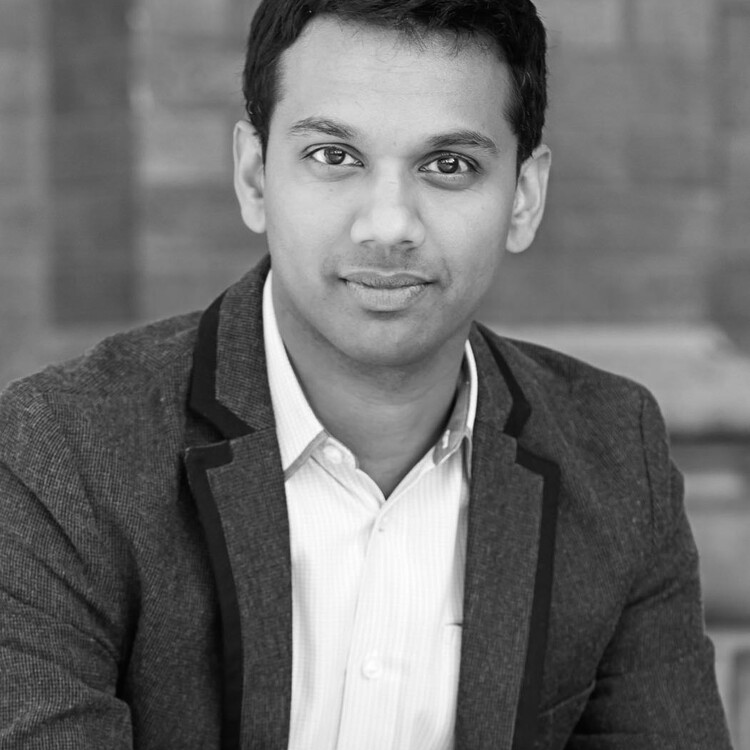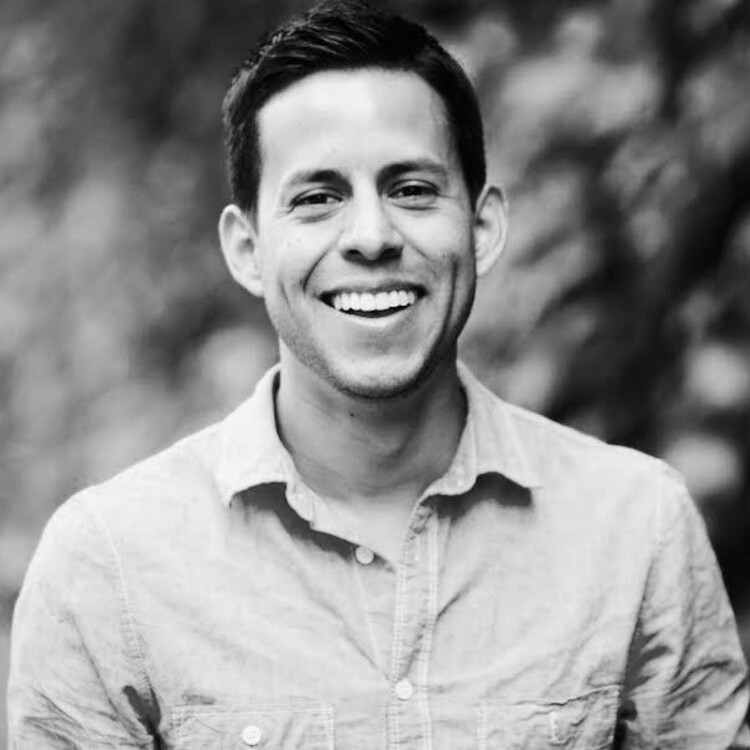Art is not Escapism. Art is Activism
a conversation with Amanda Farnsworth of Random Acts of Theatre Company
This week on HowlRound, ten rising leaders from TCG's SPARK Leadership Program examine leadership, vision, diversity, inclusion, and equity, as well exciting trends and trend makers in our field. Find the full series here.
Dana Gioia, former NEA Chairman, once said, “Art is not escapism, but an invitation to activism.” I dare to believe that our artistic voice can light a fire, encourage change, and cause improvement in our communities.
As artists, we can be leaders in our communities by continuing conversations in and outside the theatre. Artistic leaders should ask themselves, “What do we have to say? What does our community need us to say?” We have an extraordinary opportunity as artists to promote the change that is needed by telling stories and creating programs that matter in our communities. When a theatre maintains this focus, they are inviting the audience to activism.
As artists, we can be leaders in our communities by continuing conversations in and outside the theatre.
A perfect example of this philosophy is Random Acts of Theatre Company (RATCo), a small theatre company with a focus on challenging the status quo of racial injustice in Selma, Alabama in order to empower young people to find their voice. It was co-founded by two fearless women, Amanda Farnsworth and Jarah McGowan, in 2008. Amanda and Jarah are theatre professionals from Colorado and Texas, respectively, with backgrounds in acting, music, dance, and technical theatre.
The women saw a need for creating a theatre within the city limits that racially integrated the young people. RATCo was founded to help young people discover the freedom of expression regardless of the divisions and boundaries that had been on them before. Their programming includes musicals with young casts, writing workshops, and performance of personal work through spoken word, dance, and visual arts. Their core values include teaching teamwork, self-expression, and the value of giving back regardless of backgrounds, economic status, physical ability, race or ethnicity.
The first production that RATCo produced in 2008 had approximately 200 audience members and for their most recent production, earlier this year, they had an 80% Black and 20% White cast and an audience of 1500.
LaTeshia Ellerson: What need did you and Jarah see that led you to start this company?
Amanda Farnsworth: We saw there were some things lacking specifically for young people in the professional theatre industry. Theatre is a place where you can truly express yourself and find your voice, but we saw so many young people who did not have that. We had already been thinking about doing some sort of children’s theatre program, and right about that time we decided to take a civil rights trip. In Selma, we saw the incredible landmarks and the places of fighting and passion that represented the movement and the violence in the 60s. It was a very emotional experience. We realized that the state of the city did not reflect the role that it played in the civil rights movement. It took getting to know some of the people in the city to see the real issues, like the fact that the schools are almost one hundred percent segregated along racial lines.
We stayed for a while and got to know some of the people in the community. A group of people from our non-profit, the Freedom Foundation, were already considering to move here. They sought to find ways to support the community, to provide opportunities for integrated socializing, and to learn more about the situation from local activists and what they thought needed to happen for the community. A group from our nonprofit moved here and during my last visit, I thought if we were going to start a theatre company, this was the place to do it.
LE: Why is this work important?
AF: There was very little integration in the performing arts here. The African American and white communities are very distant and have very little crossover in any form. Theatre is one of those incredible art forms that can be used for great good and great expression and freedom. Our company can be a place where we can use the power of theatre to open up a space where a kid of any background, ability, orientation, or history can meet other kids from different ones, in a safe place and a safe space.
LE: Have you seen any movement of change in the community?
AF: We have seen a little movement, but there aren’t a large amount of institutions that see the need and are fighting for it. Unfortunately, I would say there is a very small but very influential group of people in the white community that have a very strong, vested interest in keeping things separated, much like people did and have done for hundreds of years. A very small number of powerful and financially influential people have an interest in having things stay as they are and those people have been very vocal since we have gotten here. I was extremely naïve when we first started. We experienced smear campaigns; websites were created dedicated to slander the people who worked for the foundation. We also had people picket our theatre performances and the kids who participated in the program started to experience backlash from kids in the schools. Particularly the white kids in our programs experienced some strong backlash, some from their parents when they discovered it was an integrated program. We realized this is a deeply entrenched issue, and more of a longterm battle.

LE: In what way have you worked with the activists in the community and how have they influenced what you do?
AF: People have been doing the work toward integration since the 1960s and continue to do the work with little support and exposure from the outside. These people are my heroes. Many of the activists in town have their own programs, but what they have truly given us is their stamp of approval. They help shape our program and speak to us about the true needs of the community and the needs of the children that we serve; they speak to us about the opposition that will come and how to handle it when it comes. There have been so many people that have come to help. They talk to us about the work we are doing and where they see the program going. Many people come and speak to the kids. It is the adults teaching them how important this work is—meeting new people, making new friends (of different races), and crossing these lines.
The work of RATCo and the Freedom Foundation exemplifies the importance of the voices of our community being communicated on our stages—the voices of the voiceless, the telling of stories that matter the most—and of creating programs that bring change to our community.




Comments
The article is just the start of the conversation—we want to know what you think about this subject, too! HowlRound is a space for knowledge-sharing, and we welcome spirited, thoughtful, and on-topic dialogue. Find our full comments policy here